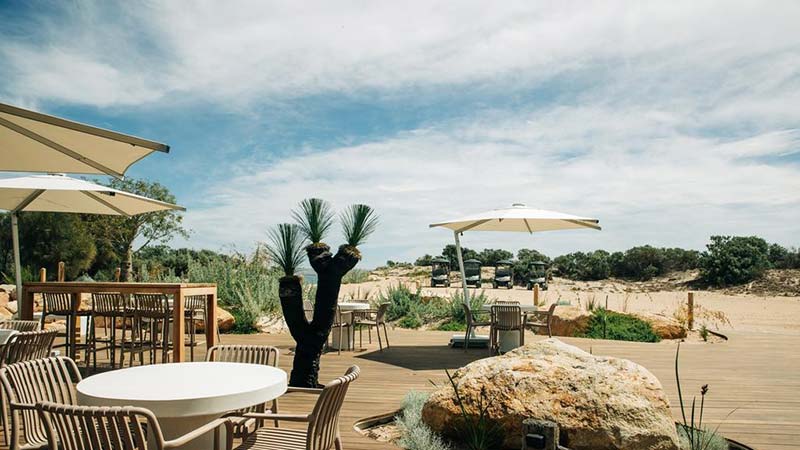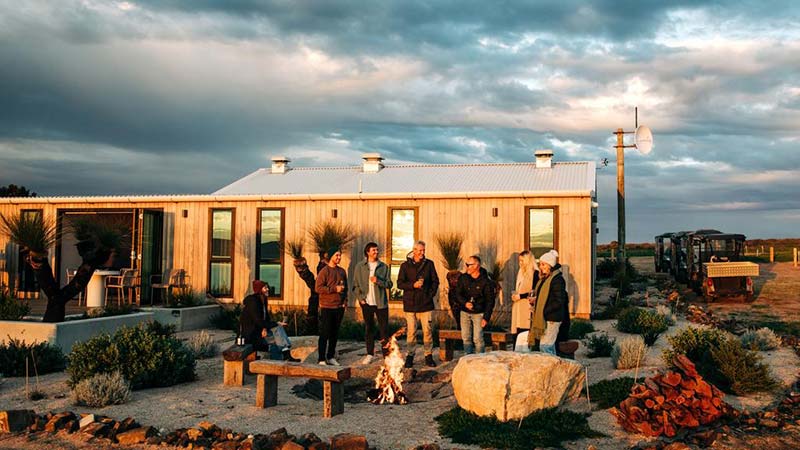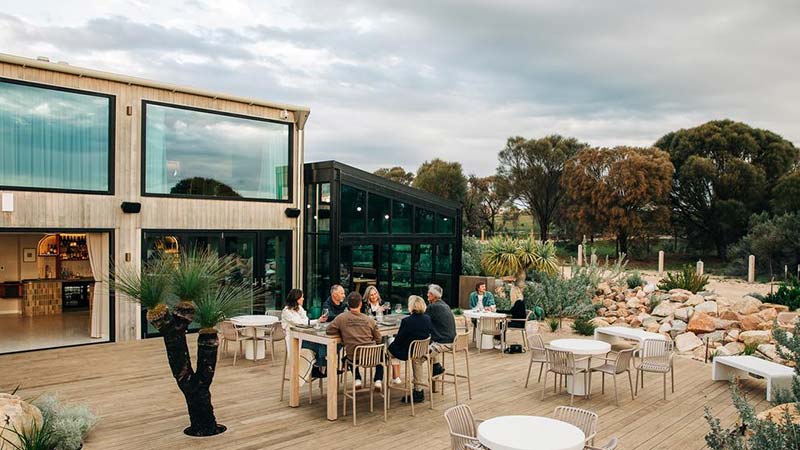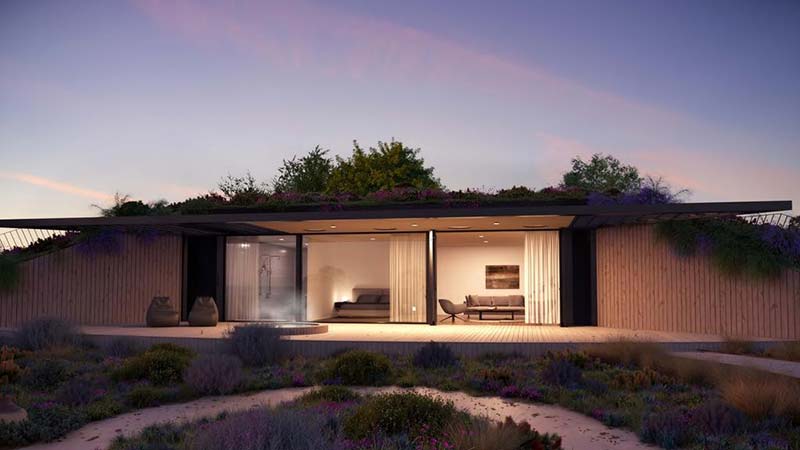Rumi Resort Plots Cabins for Villas Switch on SA Island

A luxury resort developer has lodged a planning variation to replace four approved villas with 22 smaller cabins as part of a strategy to broaden its tourism market appeal.
Ika Shima Pty Ltd, trading as Rumi on Louth, secured planning approval for 26 villas alongside a day spa and recreational facilities on the exclusive island resort near Port Lincoln in February, and has now applied to modify part of that development.
The variation replaces four of the 26 approved villas with 22 smaller cabins.
The remaining 22 luxury villas would proceed as approved, creating a mixed accommodation offering to capture budget-conscious and luxury market segments, the developer said.
The luxury villas planned are earth-sheltered structures built into constructed sand dunes, and designed to be all but invisible in the island landscape.
Each would feature private outdoor spas and fire pits, and be sited across the southern end of the island to ensure no other infrastructure is visible from the individual properties.
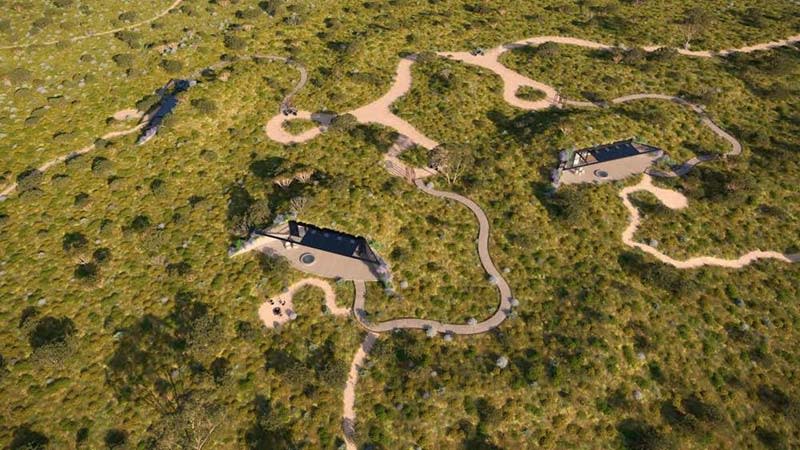
Planners said this approach would “enhance the financial success of the development” by catering to a broader market demographic, as well as creating environmental benefits to appeal to sustainability-conscious travellers.
Each 20sq m cabin would accommodate two guests, and offer a more compact alternative across the 135ha island development.
This would increase guest capacity for a portion of the development while maintaining the overall luxury positioning of the resort, the planners said.
Environmental considerations have also driven the design rethink, with native vegetation clearance reduced by nearly 70 per cent under the revised proposal.
The cabins would disturb just 0.26ha compared to 0.84ha required for the villa configuration—a reduction that is expected to help with stringent environmental approvals.
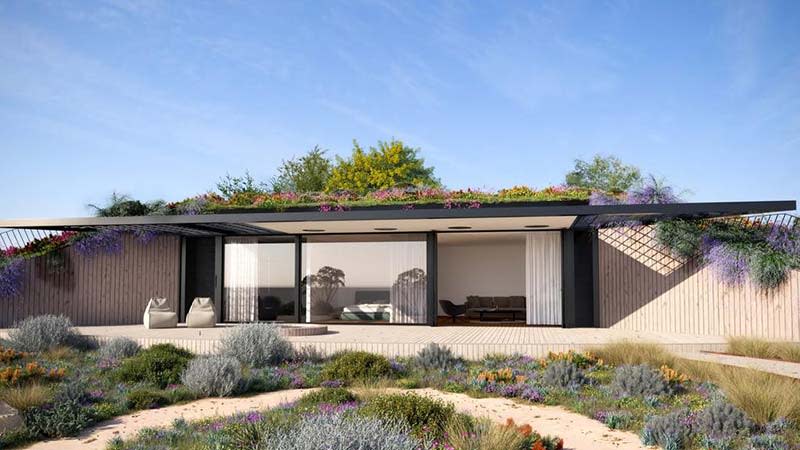
The elevated cabin design promises faster construction timelines also, potentially bringing forward revenue generation for the $20-million, second-stage development.
Each structure would sit on central piers to minimise earthworks, with timber cladding and low-reflective materials designed to blend into the landscape.
Planning consultant URPS is steering the variation application through the State Planning Commission. The proposal has been classified as performance-assessed development that bypasses public notification requirements.
The remote island eliminates concerns about neighbouring objections that often complicate mainland tourism developments.
The resort already operates a successful $30-million first stage that opened in early 2024, accommodating about 20 guests as well as fine dining facilities.
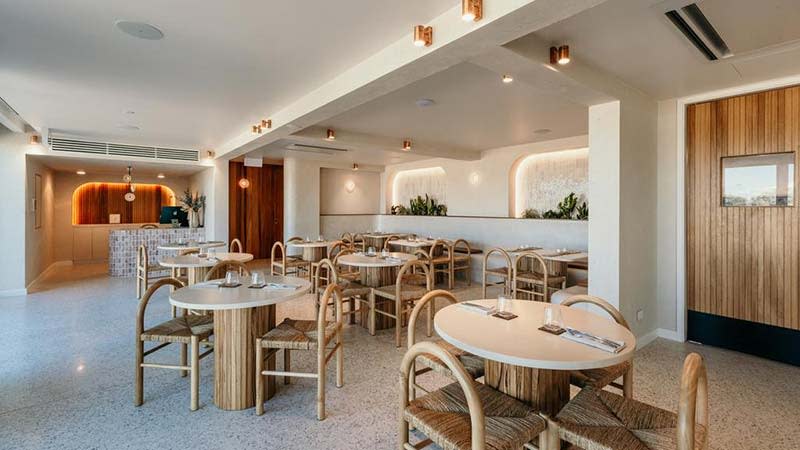
Existing infrastructure includes solar power systems, desalination plants and boat transport for guests accessing the remote island location.
Adelaide tech entrepreneur Che Metcalfe purchased the island after a 12-month negotiation with its previous owners, using proceeds from the $3.6-billion sale of telecommunications company Uniti Group in 2022.
Metcalfe, who reportedly netted more than $40 million from his shareholding, had long had dreams of island ownership before purchasing and turning the former sheep run into a luxury eco-resort.
Metcalfe initially indicated plans for the resort to accommodate 60 to 70 guests at full capacity across both development stages, with the cabin model appearing to support those visitor numbers.
The second stage would retain all previously approved recreational facilities including tennis courts, outdoor gymnasium areas, yoga and meditation spaces, plus the addition of a Japanese-inspired day spa with plunge pools and saunas.
The development team includes Archaea Architects and ecology consultant Succession Ecology.
Construction is expected to begin soon after approval. Existing infrastructure is adequate to support the expanded accommodation.
South Australia’s luxury tourism sector is on the rise, and operators are targeting regional destinations to meet evolving traveller demands.
On the mainland, IHG Hotels and Resorts has signed to operate a $100-million InterContinental resort in the Barossa Valley, scheduled to open in 2028.
